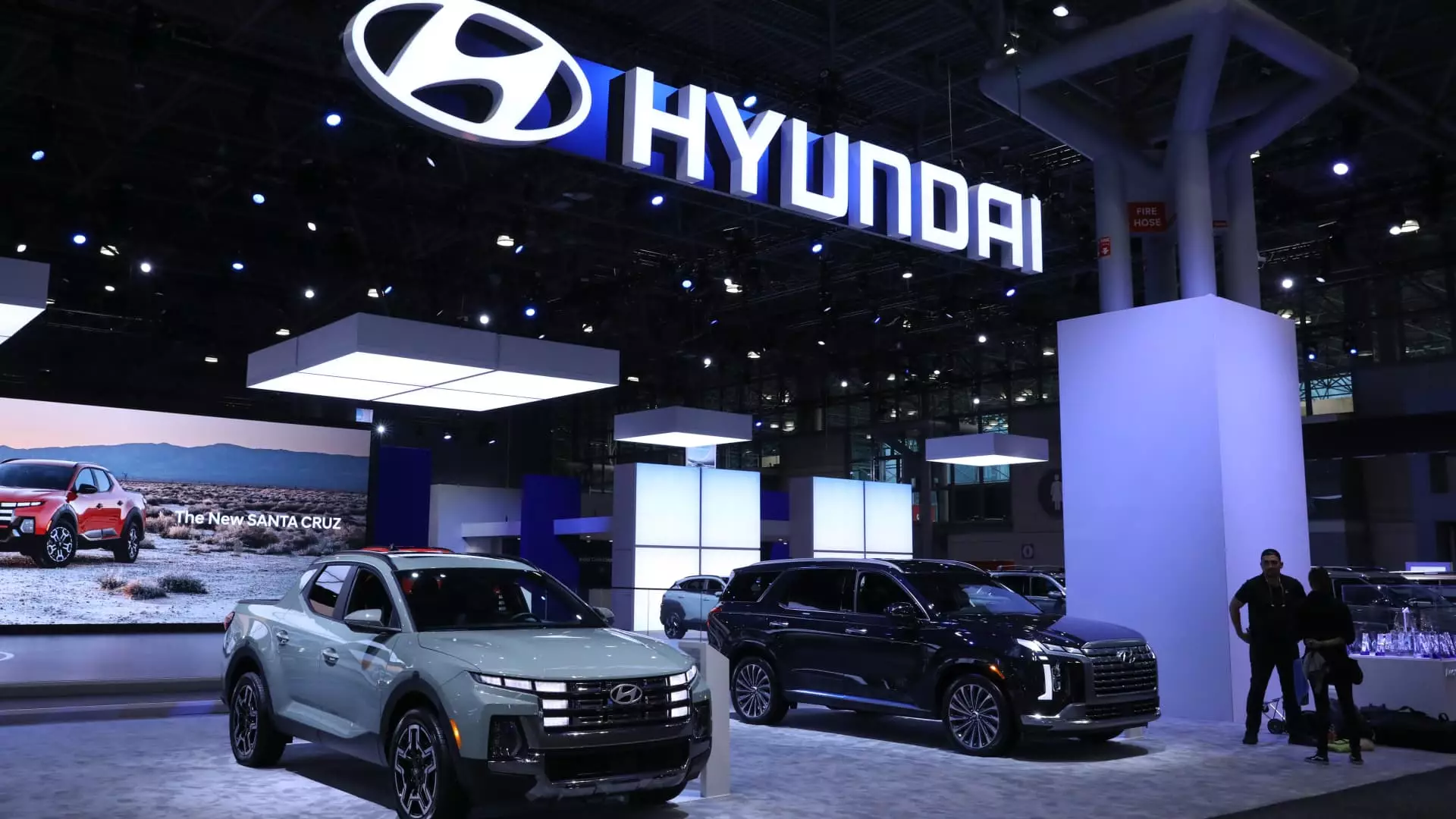Hyundai’s decision to invest a staggering $20 billion in U.S. onshoring signifies a pivotal moment in the global economic landscape. This move comes as companies scramble to navigate a labyrinth of tariffs and trade restrictions in an increasingly protectionist world. The launch of a $5 billion steel plant in Louisiana is not merely a financial infusion; it represents a strategic initiative to shore up domestic manufacturing capabilities while circumventing potential tariffs that could hinder profitability. As entities such as Hyundai align with the current political sentiment, they reflect a significant shift in corporate strategy, driven by economic necessity rather than mere opportunism.
Job Creation: A Win for American Workers
The announcement that the Louisiana steel plant will create approximately 1,500 jobs is noteworthy, especially amid a backdrop of economic uncertainty. For many Americans, job security has become a paramount concern. The intention behind this investment goes beyond mere financial gain; it addresses the pressing need for employment in underrepresented regions. By revitalizing the American manufacturing sector, Hyundai is engaging in a form of corporate social responsibility that complements their bottom line. American workers benefit, while Hyundai secures a skilled labor force that will enhance their operations.
Fueling the Electric Vehicle Revolution
In a landscape increasingly dominated by electric vehicles (EVs), Hyundai’s investment is timely and substantial. The steel produced at the new plant will aid in the manufacturing of next-generation electric vehicles at Hyundai’s U.S. facilities. As competition with U.S.-based companies like Tesla becomes fiercer, this strategic investment not only fortifies Hyundai’s position in the market but also enhances America’s status as a hub for clean energy technologies. The integration of localized supply chains accelerates the adoption of EVs and underscores a significant prioritization of sustainable practices, aligning business interests with environmental responsibility.
A Challenge to South Korea’s Trade Imbalance
President Trump’s pointed remarks regarding the U.S. trade deficit with South Korea signal a nuanced political backdrop to Hyundai’s investment. As tariffs strain relationships, this investment can be interpreted as South Korea’s proactive approach to rebalance trade dynamics. By enhancing local production, Hyundai is not just a participant in the American economy; it’s a strategic player attempting to alter perceptions and realities surrounding trade deficits. As global corporations seek to mitigate vulnerabilities, Hyundai’s actions illustrate a foresighted response to potential tariff threats.
The Broader Picture of Economic Nationalism
Hyundai’s bold initiative is part of a broader trend where multinational corporations are compelled by economic nationalism to re-evaluate their global operations. The increasing barriers to free trade, some justified and others not, compel companies to reassess traditional sourcing and manufacturing practices. This investment showcases a shift where economic diplomacy takes precedence over conventional models of globalization, aiming to protect domestic interests while fostering international relationships.
By embracing a center-right, liberal vision that promotes both business growth and national security, the Hyundai investment exemplifies a new era of international corporate relations. Rather than viewing this investment strictly through a financial lens, it embodies a renaissance of American manufacturing, responding to both market demands and political realities. In times of uncertainty, such decisive actions reinforce both local economies and global corporate standing, representing a path forward for aspiring business leaders in a fractious world.

